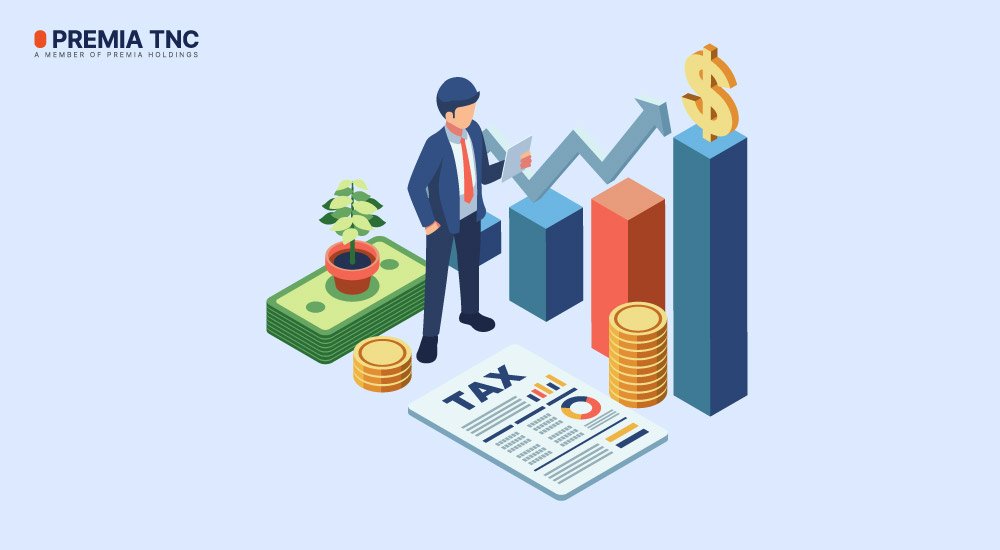Vietnam Tax Liabilities of Foreign-Invested Companies and Their Submission Deadlines Under Vietnam Law

Vietnam has positioned itself as a prime destination for foreign investment, drawing enterprises from around the globe with its strategic location, competitive labor costs, and burgeoning middle class. Yet, behind the appeal lies a sophisticated tax framework that foreign-invested companies (FIEs) must navigate diligently. Compliance with Vietnam’s tax obligations is not just a legal requirement—it’s essential for sustainable operations.
Import and Export in Vietnam – Tips to Know

Vietnam stands as one of Southeast Asia’s most dynamic players in the global trade arena. Over the past few decades, the country has rapidly transformed from a primarily agrarian economy to a manufacturing and export powerhouse. With a fast-growing economy and a strategic geographic location, Vietnam’s import and export activities have garnered significant attention from international businesses.
Key Highlights of Vietnam’s New Data Law

Vietnam’s new data law marks a significant leap forward in the nation’s approach to data protection and privacy. As digital transformation accelerates globally, Vietnam has taken crucial steps to ensure that personal data is handled with care, respecting the rights of citizens while promoting a thriving digital economy. This law, formally known as the “Personal Data Protection Law,” establishes clear guidelines on the collection, storage, processing, and transfer of personal data. For both local businesses and international companies operating in Vietnam, understanding the nuances of this law is essential for compliance and success in the digital age.
Rules governing long-term foreign borrowing and foreign debt repayment for FDI company in Vietnam

Foreign borrowing has become a critical tool for Foreign Direct Investment (FDI) companies in Vietnam. As the country continues its integration into the global economy, businesses must tap into international financial resources to fuel growth, expand operations, and invest in technology. Foreign long-term loans, in particular, provide the necessary capital to undertake large-scale projects and ensure the longevity of business ventures.
Key Provisions of the Joint Venture Agreement between Vietnamese and Foreign Investors

A joint venture (JV) is a business arrangement in which two or more parties come together to undertake a specific project or business activity, sharing the associated risks, rewards, and responsibilities. These partnerships typically combine the strengths and expertise of both parties to leverage market opportunities, pool resources, and achieve greater operational efficiency.
Vietnam Tax Free for Manufacturers

Vietnam has emerged as one of the most dynamic economies in Southeast Asia, drawing substantial attention from global manufacturers looking for cost-effective alternatives. One of the country’s most attractive features for manufacturers is its tax-free incentives. These tax breaks, coupled with the country’s robust growth in the manufacturing sector, create a unique opportunity for foreign and local businesses alike. In this article, we will delve into Vietnam’s tax-free offerings for manufacturers, examining the specifics of tax exemptions, the roles of Free Trade Agreements (FTAs), and the impact of special economic zones (SEZs) and industrial zones on the manufacturing landscape.
10+Policies to Ensure Fairness for Female Workers Under Vietnamese Labor Law

The importance of gender equality in the workplace has become an undeniable focus in both developed and developing economies. In Vietnam, a nation that has made significant strides in economic growth over recent decades, ensuring fairness for female workers under labor law has become a critical priority. With a workforce increasingly comprising women across various sectors, the need for robust legal frameworks to protect their rights and opportunities is ever more pressing. Vietnamese labor law, built upon both domestic legal principles and international labor standards, seeks to address these issues through specific policies designed to protect female employees.
The Procedure for Announcing the Applicable Standards for Class A and B Medical Device Distribution in Vietnam

In Vietnam, the distribution of medical devices requires strict adherence to regulatory frameworks designed to ensure product safety, quality, and compliance with local standards. Class A and Class B medical devices must be announced according to applicable standards to gain access to the market. This process is not only a regulatory necessity but also a crucial step in establishing the legitimacy and safety of medical products, thereby fostering trust among healthcare professionals and consumers.
Some Notes for Foreign Investors Contributing Capital, Purchasing Shares, or Purchasing Capital Contributions for Vietnam Companies

Vietnam has emerged as a premier investment destination in Southeast Asia, attracting foreign capital due to its stable economic growth, competitive labor market, and increasingly open business environment. As more foreign investors seek to contribute capital, acquire shares, or purchase capital contributions in Vietnamese companies, it is imperative to navigate the legal intricacies that govern these transactions. Vietnam’s regulatory framework imposes strict procedures to ensure compliance, making it essential for investors to understand the required steps before engaging in business activities.
International Organizations Rate Vietnam as an Attractive Investment Market

As economies worldwide recover from the aftershocks of past global crises, opportunities for new businesses are multiplying. Economic stabilization in many regions has ushered in an environment where risk-taking is more palatable, and there’s increased consumer confidence. The recessionary cycles of the past seem to have diminished, with many industries showing promising recovery trends. Whether it’s in healthcare, education, or e-commerce, there is a surge in market demand that new enterprises can capitalize on. Entrepreneurs now see doors opening in sectors that were previously stifled by economic uncertainty.
